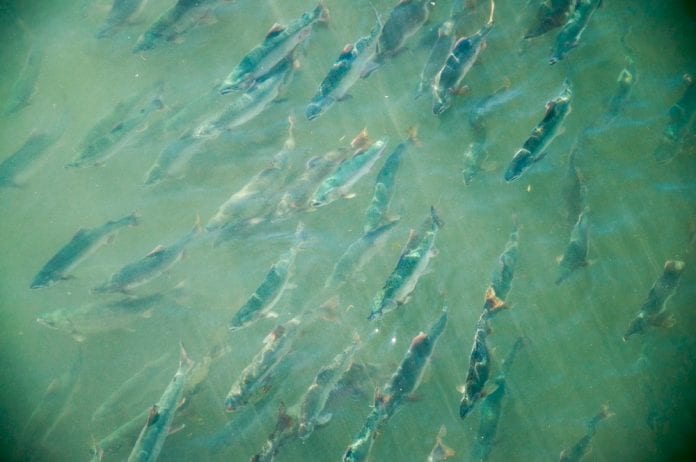
Citing poor ocean survival conditions for king salmon persisting in Southeast Alaska and British Columbia, the Alaska Department of Fish and Game is halting retention of Chinook salmon in southeast Alaska recreational and commercial fisheries.
In an announcement Aug. 7, ADF&G said that halting retention of king salmon effective Aug. 10 in Southeast Alaska recreational and commercial fisheries from Aug. 10 through September was necessary to protect future production of kings.
Charles Swanton, deputy commissioner of ADF&G, said inseason information from the state agency, the Canadian Department of Fisheries and Oceans, and NOAA surveys off the coast of Oregon, Washington and the Gulf of Alaska all indicate that current poor production conditions would persist through at least 2018.
In particular, Southeast Alaska and British Columbia stocks are experiencing historically low production, Swanton said. Many of the affected stocks will not meet escapement goals or management objectives in 2017, he said.
The announcement sparked concern among those engaged in commercial and sport fisheries, on what economic impact will be on Southeast Alaska.
If such extreme measures are being taken in Southeast Alaska, then similar conservation efforts need to be taken in British Columbia, Washington and Oregon, said one commercial fisheries spokesperson, speaking on condition of anonymity.
Swanton said the restrictions the department is looking at are focused on local stocks in Southeast Alaska. Southeast Alaska is a mixed stock fishery, he said.
“We don’t take these decisions lightly,” Swanton said. “We don’t want to be in a situation where we are going into a king salmon rebuilding program for the next eight to 10 years.”
Swanton said he has been receiving a fair amount of input on the decision from commercial trollers and sport fishing lodges.
Meanwhile Swanton has been working on renegotiations for the Pacific salmon Treaty, which runs through Dec. 31, 2018. “By Jan. 1, 2019, we had better have a new treaty in place,” he said. “I want something as simple as can be, and implementable, with accountability provisions so everyone has a measure stick, and that is affordable.”














